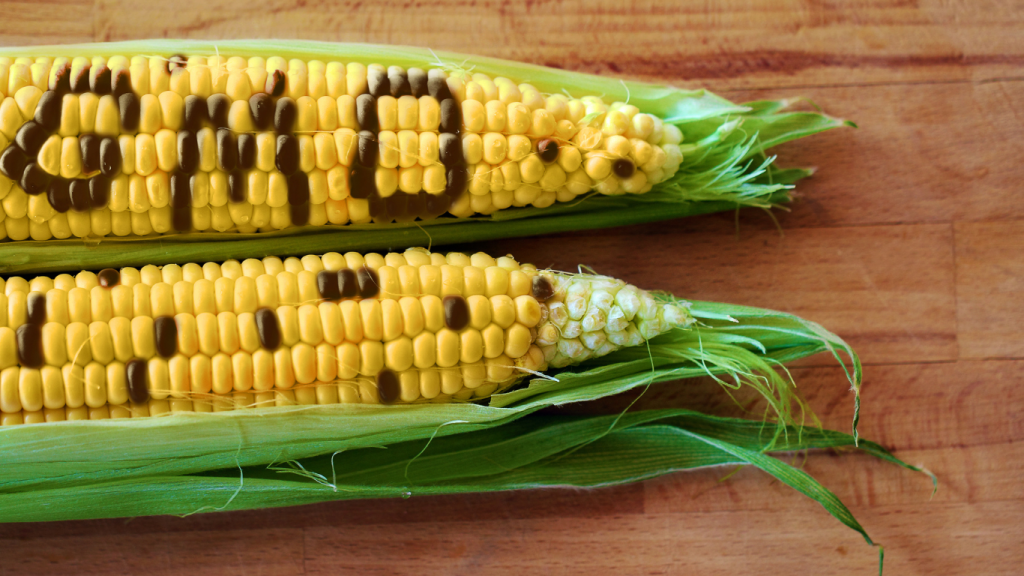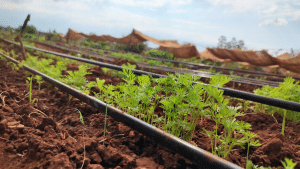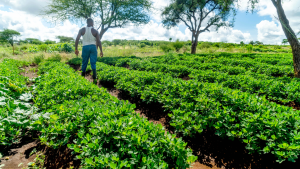
The concept and application of genetically modified organisms (GMOs) in agriculture has fundamentally changed how crops are cultivated across the globe. The groundwork for GMO technology was laid when Herbert Boyer and Stanley Cohen created the first genetically engineered (recombinant) DNA.
In 1982, the first GMO approved for commercial use was Humulin, insulin produced by genetically modified bacteria, marking a significant breakthrough in biotechnology. 12 years later in 1994, the Flavr Savr tomato became the first genetically modified food crop to be approved and commercially sold in the U.S. It was engineered for a longer shelf life.
Widespread Adoption:
1990s-2000s saw the adoption of GMO crops leading to exponential growth during these decades. Key crops like soybeans, corn, and cotton were genetically modified to exhibit traits such as pesticide resistance and herbicide tolerance.
By 1996, GMO crops were planted on about 1.7 million hectares worldwide. By 2016, this number had expanded to 185.1 million hectares, demonstrating rapid adoption by countries like the USA, Brazil, Argentina, India, and Canada.
The most common trait among GMO crops is herbicide tolerance, found in about 56% of all GMOs. This trait allows farmers to use weed killers without damaging the crops.
The second most common trait, found in 16% of GMOs, involves resistance to pests, reducing the need for chemical pesticides.
So, why the concern? Controversies and Challenges of GMOs
GMOs have been a staple in global agriculture for decades, promising higher yields and reduced pesticide use. However, the reality of their impact is multi-faceted and often concerning:
Health Risks: Studies suggest such as the Republished study: long-term toxicity of a Roundup herbicide and a Roundup-tolerant genetically modified maize,” Environmental Sciences Europe, 2014 links between GMO consumption and health issues such as allergies and even long-term diseases. The alteration of natural genetic structures in crops could be introducing new proteins into our diet, triggering allergic reactions or worse.
Environmental Concerns: GMOs have been criticised for potential environmental impacts, including the promotion of herbicide-resistant weeds and the reduction of biodiversity due to monocultures.
GMO crops often require herbicides that are touted as safe but have been found to harm non-target species, reduce biodiversity, and contribute to the development of resistant weeds and pests.
How GMOs Affect Us and the Planet
- Biodiversity Loss: GMO agriculture often leads to monocultures- vast areas of land cultivated with a single crop variety. This practice diminishes agricultural diversity, making our food supply more susceptible to diseases and pests.
- Soil Degradation: The heavy use of chemical herbicides and pesticides in GMO farming can lead to soil degradation, reducing its fertility and affecting its ability to store carbon, which is crucial for mitigating climate change.
- Health Concerns for Communities: The chemicals used in GMO farming can contaminate water supplies and soil, posing health risks to nearby communities. Additionally, the uncertainty surrounding the long-term consumption of GMOs continues to raise significant concerns about public health and safety.
Ambokili Farm’s Role in Promoting Organic Solutions
At Ambokili Farm, we believe in the power of nature. Our farming methods are designed to restore and maintain the natural ecological balance.
– Preserving Natural Biodiversity: We practice crop rotation and polyculture, growing multiple crop species that support a diverse ecosystem.
– Enhancing Soil Health: Our use of organic composting and natural pest control enriches the soil without toxic chemicals, promoting healthier crop growth and sustainability.
– Community Development: We educate and involve our community in sustainable farming practices, fostering an environment of knowledge and growth towards organic consumption.
Why Your Choices Matter
Every time you choose an organic product, you are casting a vote for environmental health, sustainable farming practices, and improved community welfare. Here’s why each choice can make a substantial impact:
– Supporting Local Economies: By purchasing organic, especially from local farms like Ambokili Farm, you contribute to the economic stability of local farmers who use sustainable practices. This support helps them continue their vital work and promotes a model of agriculture that benefits both the planet and people.
– Global Impact: The global challenges posed by GMOs—environmental degradation, health risks, and economic disparity—can feel overwhelming. However, the solution starts locally. By supporting farms that prioritise the planet and its inhabitants, we can make a significant impact on a global scale. Ambokili Farm is proud to be a part of this solution, demonstrating that sustainable, organic farming is not only viable but essential for the future.
– Conserving Water and Energy: Organic farms typically use less water and lower energy inputs compared to conventional farms. By supporting organic products, you help reduce the overall environmental footprint associated with farming.
– Promoting Healthier Living: Choosing organic is also choosing a lifestyle free from harmful pesticides and genetically altered ingredients, which contributes to better health and well-being for you and your family.
The journey towards a sustainable future is not just about avoiding harm; it’s about actively doing good. Ambokili Farm is more than a farm; it’s a movement towards healing our planet. Ambokili Farm is committed to a future where organic and sustainable agriculture is the norm, not the exception. We are dedicated to nurturing the land that sustains us and believe that together, we can foster a healthy, sustainable world for generations to come.
Choose organic, not just for the rich flavours or the peace of mind that comes from eating toxin-free foods, but for a thriving planet. Take a stand for your health and the health of our planet. Visit our farm, join our community programs, or simply start by choosing organic at your local store. Every action you take supports a sustainable, prosperous, and healthy future.
Connect with us on social media, share our story, and become a part of the movement towards a greener, more sustainable world.
Your choices matter—make them count.






